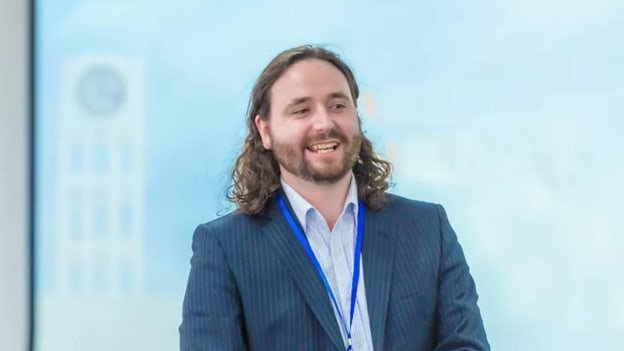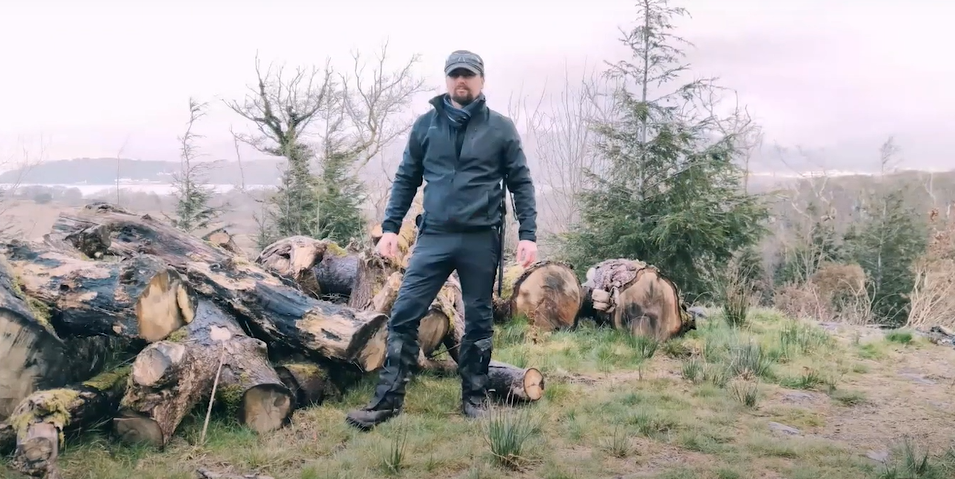Bestselling author and CEO Ben Whitter on growth and 'delivering exceptional results'

"This was taken about a year ago," Ben Whitter flashed a photo on the screen. The image captured a poignant lesson from the pandemic for the man regarded by many as a leader in employee experience.
In that photo, the bestselling author isn't in a corporate setting. Rather, he is seen standing in the great outdoors of Snowdonia in Wales – a land symbolic of his own personal journey.
"We've been planting trees and regenerating this land," he said of his team's conservation project from 2021. "We've been working with our clients ever since to create a stronger connection between people and the planet."
 Credit: Ben Whitter | HEX Organization
Credit: Ben Whitter | HEX Organization
Ben's photo has become his "reference point" for how much life has changed for him, his team and the organisations they help grow, in the face of a global crisis.
"If it weren't for the pandemic, I never would have had the time to really explore my own human experience, my own values; what's massively important to me in that deep, profound way," Ben recalled.
What may be considered a time of slowdown for many was for him a time of growth.
It was also during this period of reflection that Ben released Human Experience at Work, his latest title debuting as the #1 bestselling HR book in the UK and US.
Renowned for developing and popularising the concept of the employee experience, Ben has earned the title of "Mr. Employee Experience" – and rightfully so.
He is the creator of the Holistic Employee Experience (HEX) model for optimising business and human performance, and is CEO of HEX Organization. He has spent the past two years sharpening his focus on human-centred leadership in a time of disruption.
"My entire existence is obsessed with this topic of employee experience," Ben said.
"Many organisations around the world are looking at employee experience as a way to rise above the challenge … to deliver superior and differentiated business performance." That's the battlecry of most employers.
On an individual level, however, employees today are revaluating their expectations of the workplace, "looking at new possibilities to configure their own lives in a way that's going to give them the quality and fulfilment that they want from their experiences," he said.
"This has been largely a global awakening in many aspects. People are questioning what the human experience is to them and what it means to them. Organisations, employers and leaders are caught up in this because – as people – they also need to navigate, understand and rediscover what it is to be human."
Human experience is top of leaders' agenda
In his new book, Ben chronicled "massive levels of experimentation" when it comes to business models, workplaces and work configurations. "One thing is absolutely clear: change has come and it's come in a very big way."
Workers are driving this change, and that change includes organisations knowing "what employees will tolerate from businesses, what they'll accept, and what they'll expect".
Having experienced a certain degree of freedom and flexibility from working remotely, many have come to expect what Ben calls a "lighter-touch leadership approach" even after the pandemic.
This change is fundamental and somewhat irreversible, he said. "We're not going back to work the way it was, and we're probably never going to be the same again."
Organisations are having to adapt and change at a rapid pace, but the most successful ones rely on expert guidance. "Coaching is a key part of that because we're all going through this change as practitioners and leaders," Ben said.
With that, redefining the human experience is now top of the business agenda for many.
"We've been given an opportunity to explore ourselves in ways that we couldn't imagine. People are asking more questions about how they can configure their experiences around their life, as opposed to working a nine-to-five job," he said.
"It's about exploring our values, our truth, our purpose, our mission in life, and how they fit into an organisation. If you have alignment between those two things, that's the utopia of employee experience."
Strengthening connections
Companies are now responding with more compassion, Ben observed. This entails listening to them more closely.
"What's come up through our research is that people really want to be in control of their own experience," he said.
"Personalisation and customisation in the context of your organisation are going to be critical in the years ahead. So, how can we enable people to become the true architects of their own experience?
"We're looking at this connection between planning and performance, strengthening the people element and their connection to the planet and the environment," he said.
Human performance and business performance are converging.
"One without the other is weak. If you're delivering a great business on the back of a broken workforce, it's not going to work well in the long term," Ben said.
"If you have a business that's built on the human experience, research shows, you are leading with a purpose. It's not just some marketing exercise. The purpose of the organisation is critical."
Organisations "deliver exceptional results" when human centricity runs across their support functions in HR and beyond HR. "They have leadership and CEOs taking it very, very seriously because they're absolutely driven by experiences," he added.
"In 2022, this is the name of the game for long-term success. Is your business admired and respected? Is it trusted on the inside and outside? Is it having a positive impact on the world?
"If we're starting to answer some of these questions positively, then we're going to be in a very strong position for the future."















